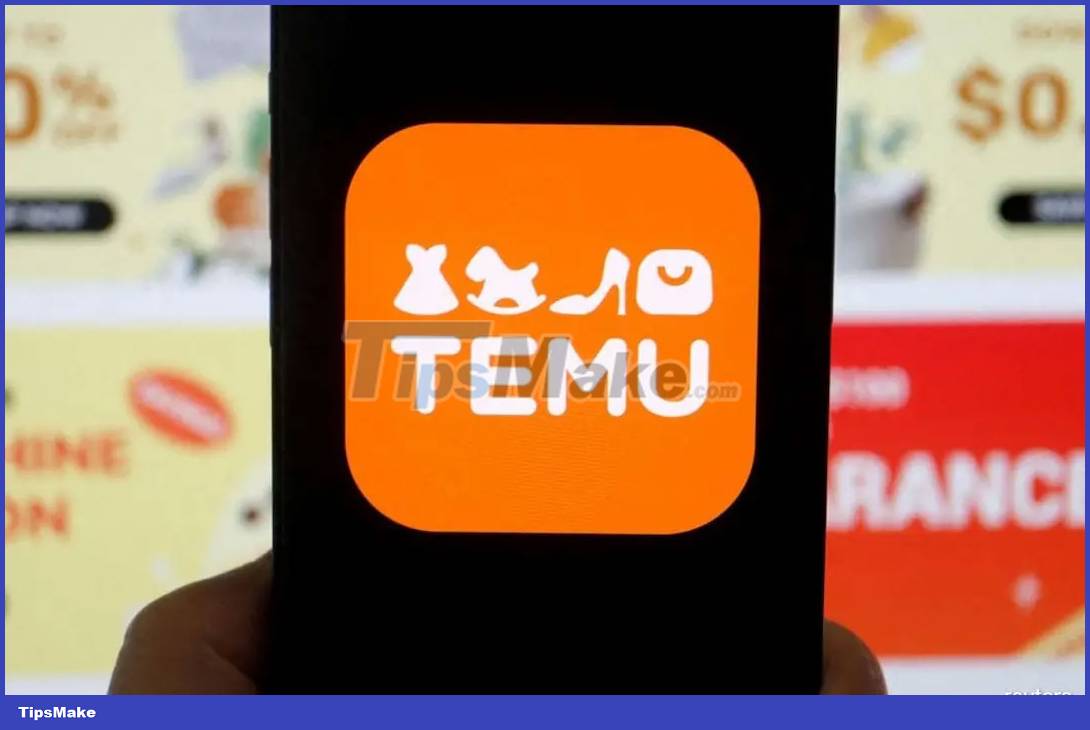Pinduoduo surpasses Alibaba, bringing significant innovations to Chinese e-commerce
Jack Ma essentially invented the e-commerce business in China by co-founding Alibaba Group Holding Ltd and bringing it to the forefront of the country's private sector. But a few weeks ago, the famous entrepreneur mentioned a little-known competitor that has outgrown his brainchild and become a role model for the technology industry.
'Congratulations to Pinduoduo for their decisions, actions and efforts over the years' , Jack Ma wrote on an internal forum, urging Alibaba's more than 220,000 employees to 'adjust their direction' .
Alibaba's leading position is shaking
For those outside China, the name Pinduoduo may be little known. However, the upstart company, officially known as PDD Holdings Inc, has grown in popularity over the years, winning over customers in the domestic e-commerce market with a series of innovations. This is also the company behind the popular shopping application Temu in the US, this application has gone from zero to become a rival of Amazon.com Inc. and Walmart Inc. in just over a year. After Jack Ma's comments, PDD's market value surpassed Alibaba's for the first time, a seismic shift for an industry that had been dominated for more than a decade by the company that Jack Ma built .
'This is a watershed moment for PDD, surpassing Alibaba,' said Daniel Ives, chief executive officer of Wedbush Securities . 'PDD is a thought leader and has achieved success in every market segment, while Alibaba has suffered a minor setback' .
PDD has only been operating for 8 years, about 1/3 of the time Alibaba has been operating. From his start in Shanghai, founder Colin Huang, wanted to differentiate the emerging online retail industry from traditional services like Alibaba and Amazon by incorporating features from other companies. game company that he previously ran. PDD shoppers get bargains by hunting for products and then telling their friends about the deals they can score together. Customers can also collect discount vouchers by spinning the roulette wheel or raising virtual fish in the app. Mr. Huang's idea was to make online shopping more fun and social than what the competition offered.
'Some companies have tried this before, but no one has really been able to do it ,' Mr. Huang said in an interview with Bloomberg News in 2017, one of his first with the media. foreign communication. 'We feel we have a competitive advantage.'
Mr. Huang resigned as chief executive in 2020 and PDD declined to invite executives to participate in interviews about this. In a statement to Bloomberg, a Temu spokesperson said its app features were inspired by activities people find in shopping malls or fairs. The statement said: 'For example, our limited-time offers are similar to flash sales in physical stores, while our prize wheel and lucky draw evoke remember the shopping mall promotions'. 'Our aim is to recreate these familiar offline experiences in the digital world, adding an element of fun and familiarity to online shopping.'

Through Temu, users in more than 40 countries are now experiencing the company's game-like features and lowest prices. In the US, the app made a splash in February with its 'Shop Like a Billionaire' Super Bowl ad - and quickly became one of the most downloaded apps in the country. Temu.com was the fastest-growing cross-category retailer on Black Friday, with traffic up 84%, compared with 2% at Amazon.com, according to research firm SimilarWeb.
Will the new application develop sustainably?
However, this also has mixed opinions. Customers are hooked as they scroll through the app to find unbelievable bargains, like an sonic toothbrush for $3.28 or AirPod-like earbuds for $2.98. But without millions of dollars in subsidies and marketing, would people stay? Wish.com, Groupon, Pets.com spent heavily on subsidies only to find that they couldn't convert users into loyal customers.
'Temu may not be able to offer its current low price indefinitely, which could lead to an erosion of its key value proposition,' said Morgan Stanley analysts, including Simeon Gutman, wrote in a recent report titled 'The Temu Effect'. 'The data may suggest that Temu is 'attracting' new shoppers without creating stickiness after initial trials on the platform."
PDD and Temu have many supporters. This indicates that the parent company has proven that it can turn a large number of users into profitable customers.
PDD is on track to increase net income by about 60% this year to 51 billion yuan (7.1 billion USD or RM33.24 billion) on revenue of 235 billion yuan. Temu is currently losing billions of dollars, but many analysts think it will turn a profit and become a significant part of the company's business over time.
'We expect the company to become a force to be reckoned with globally in the coming years,' Sanford C. Bernstein analysts led by Robin Zhu said in a research note in September. 8.
Significant innovations for e-commerce
PDD says it is bringing significant innovations to e-commerce, including interactive game-like shopping and a more efficient supply chain, connecting consumers directly to factories at low cost than. 'The "consumer to manufacturer" (C2M) model with Pinduoduo is a pioneering effort in China. With Temu, we are adapting this model to the global market' , a company spokesperson said in his statement.
Both Mr. Ma and Mr. Huang represent a generational change in the Chinese technology industry. Jack Ma, 59, went to hotels as a boy to learn English from foreigners and started his business as China's Communist Party began opening up its economy to businesses private. He came up with the idea of founding Alibaba when he tried searching for beer online and realized that he could find almost nothing in Chinese.
Mr. Huang, a young math prodigy at just 16 years old, started his career with global opportunities. He attended graduate school at the University of Wisconsin, then worked for both Microsoft Corp and Google. When he founded PDD, he recognized an opportunity between two leading companies of the Chinese technology industry – Alibaba and Tencent Holdings Ltd, the gaming and social networking giant. He realized that Alibaba really couldn't do well in social and gaming, while Tencent struggled with online commerce. 'These two companies don't really understand each other,' Mr. Huang said in a 2017 interview. 'They don't really understand how the other makes money.'
PDD had to go through many obstacles on the road to success. After its IPO on Nasdaq in 2018, the company's shares fell below its initial public offering price amid concerns about profitability. Alibaba and other e-commerce companies began imitating PDD's strategy. Mr. Huang also stepped down as chairman in 2021 after his net worth rose to $45 billion, at a time when Beijing began cracking down on China's tech giants and billionaires like Jack Ma.
However, PDD moved forward. Under CEO Chen Lei, the company has increased revenue by expanding into smaller Chinese cities and overseas markets. The company posted its first annual profit in 2021 when revenue hit 94 billion yuan, then tripled profits last year when revenue rose to 131 billion yuan.
The company is focused on attracting users in third- and fourth-tier cities, putting up a tough fight with incumbents in wealthier metropolises. That strategy has proven effective as China's economy endured years of Covid lockdowns. The board of trustees who weathered those challenging times included Chen, who also attended the University of Wisconsin; Zhao Jiazhen, co-founder and now co-CEO; and CEO Gu Pingping. Gu, one of the most senior women in China's tech sector, is considered the architect of Temu's global strategy.

PDD certainly benefits from Alibaba's difficulties. In October 2020, Jack Ma famously criticized Beijing regulators for their oversight of innovative industries like technology. The Chinese Communist Party quickly cracked down on Alibaba's financial arm, Ant Group Co, and then Alibaba itself. The government harshly criticized 'platform' companies for taking advantage of their dominance to limit competition and fined Alibaba a record $2.8 billion in 2021 following an antitrust investigation.
Xiaoyan Wang, an analyst at Shanghai-based 86Research, said giants like Alibaba have had to be more cautious due to the government's attention - a reason perhaps for the company's lead in trade. This electronic cannot keep up with PDD's strategy. 'Close scrutiny of tech regulation focuses on concerns that Internet companies are too powerful', this person said . 'PDD faces less pressure than these tech giants' .
Jack Ma became famous over the decades not only because of his company but also because of his public profile. While Jack Ma appeared at Davos and other high-profile events around the world, Colin Huang mostly stayed on the sidelines. In earnings reports and press releases, PDD repeatedly emphasized its desire to help rural people escape poverty, help farmers bring products to market, and solve food security problems. and scarce.
PDD will need all of its political acumen as it expands globally. In many ways, Temu resembles TikTok - a smartphone application developed by its parent company originating from China.
However, while politicians in Washington have threatened to ban TikTok, PDD has almost completely escaped scrutiny. That may be because TikTok's videos are seen as potentially dangerous in influencing American children, while cheap shopping has less political overtones. Or maybe politicians in Washington simply haven't noticed the growing popularity of service from PDD.
Temu created a download craze this year with its Super Bowl ads and aggressive marketing on platforms like Facebook. This app is also terrifyingly addictive. Once you install the software, you'll immediately have a chance to win a $200 coupon if you spin the roulette - and everyone wins something. Then you know your coupon will be increased to $300 - if you make your purchase within 10 minutes. That motivates me to buy products I never thought of.
PDD is growing rapidly
The mobile service had 48.2 million average monthly users in the US as of the end of October, just 27% behind Amazon, according to app tracker Sensor Tower. Temu's site attracted about 100 million visitors in November, making it the seventh most popular retail site in the US behind Amazon, eBay, Walmart and others, according to SimilarWeb estimates.
Temu quickly surpassed another application originating from China, Shein. Its sales surpassed fast-fashion services for the first time in May in the United States, beating the competition by about 20%, according to Bloomberg Second Measure, which analyzes people's credit and debit card transactions. consumption. Since then, the app has extended that lead months and in November recorded almost triple Shein's observed sales in the country.
According to Zhu and other Bernstein analysts, Temu's revenue in the third quarter could increase more than 300% to about $1.8 billion. They estimate Temu will lose $3.65 billion this year on revenue of $13 billion, but expect it to turn a profit in 2025 or 2026.
There are signs that Temu's growth may be short-lived. According to a Morgan Stanley survey, about 44% of shoppers are spending less on the platform while only 22% are spending more, a sign that the platform is attracting new shoppers to buy. without converting them into loyal customers. Temu shoppers are mainly women, young people and people with low incomes. According to the company, more than half have an annual income of less than $50,000 and 58% are over 45 years old.
Temu's future remains unclear. The types of goods are very diverse. However, customers frequently complain about the quality of goods on the platform and errors during delivery. Even fans say the app's addictive nature is worrying.
Temu rejects any comparison to Wish.com, the e-commerce phenomenon that became the world's most downloaded e-commerce app in 2018 when it struck marketing deals with Los Angeles. Angeles Lakers and World Cup soccer players - and then saw revenues plummet after the subsidies stopped. 'Our platform and supply chain are markedly different from Wish.com,' the company said in its statement, adding that it is able to offer sustainably low prices by cutting out the middlemen between manufacturers and consumers.